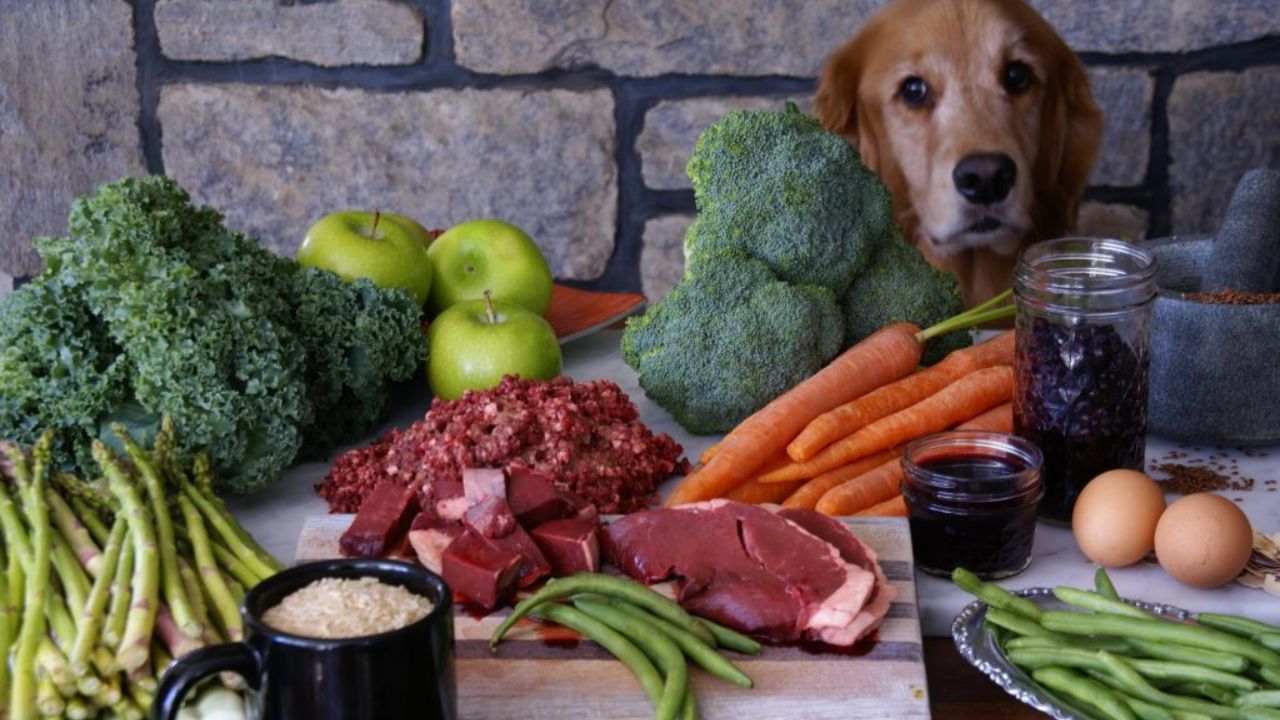If you’re a proud Pomeranian owner, you know how important it is to provide your furry friend with a balanced and nutritious diet. However, determining the right amount of food to feed your Pomeranian can be challenging. This article will explore various sources and expert opinions to provide a comprehensive guide on how much to feed your Pomeranian.
The General Rule of Thumb
According to several sources, including Pet Plate and Quora, a general rule of thumb for feeding Pomeranians is about ½ cup of high-quality dog food per pound of weight. This suggested guideline helps ensure your Pomeranian receives the appropriate nutrition to maintain a healthy weight. It’s important to note that this is a daily total and should be spaced out throughout the day.
Feeding Puppies
Feeding Pomeranian puppies requires a slightly different approach. Pet Pom suggests feeding your Pomeranian puppy three meals per day, along with several dry snacks. This regular feeding routine helps support young puppies’ rapid metabolism and smaller stomach size. As your Pomeranian grows older, you can reduce the number of meals to twice daily.
Adjusting Portion Sizes
Although the general rule of thumb offers a useful place to start, it’s essential to adjust the portion sizes based on your Pomeranian’s needs. Factors such as age, activity level, metabolism, and overall health can influence the amount of food your Pomeranian requires.
If your Pomeranian is gaining weight or becoming overweight, it may be necessary to reduce the portion size slightly. On the other hand, if your Pomeranian appears thin or is not gaining weight properly, increasing the portion size may be necessary. It’s always a good idea to consult your veterinarian to determine the appropriate portion sizes for your Pomeranian.
Recommended Food Types
In addition to portion sizes, the type of food you feed your Pomeranian is equally important. Feeding small-breed dogs premium dog food that satisfies their nutritional requirements is advised. Seek products with the main ingredient is real meat; avoid foods that contain artificial flavours, fillers, or preservatives.
Some sources suggest that Pomeranians can eat up to ½ cup of good quality dry kibble per pound of body weight per day, split between two or three meals. However, it’s crucial to remember that every Pomeranian is unique, and individual needs can vary. Always monitor your Pomeranian’s weight and adjust the portion sizes accordingly.
Additional Considerations
While the guidelines mentioned above provide a solid foundation for feeding your Pomeranian, it’s important to consider a few additional factors:
Treats and Snacks
When feeding your Pomeranian, it’s important to consider any treats or snacks given throughout the day. Treats should be factored into the daily calorie intake to ensure your Pomeranian maintains a healthy weight. It’s recommended to choose treats specifically formulated for small breed dogs and limit their consumption.
Water Intake
Water is essential for your Pomeranian’s overall health and well-being. Make sure fresh water is always available for your furry friend. Ensure their water bowl is regularly cleaned and filled to encourage proper hydration.
Age-Related Changes
As your Pomeranian ages, their dietary needs may change. Older Pomeranians may require fewer calories due to decreased activity levels. Regular check-ups with your veterinarian can help you make necessary adjustments to ensure your ageing Pomeranian receives the appropriate nutrition.
Weight Management
Maintaining a healthy weight is crucial for your Pomeranian’s overall well-being. Obesity can lead to a variety of health issues, including joint problems, diabetes, and heart disease. Regularly monitor your Pomeranian’s weight and body condition to ensure they are within the healthy range. If you notice any sudden weight gain or loss, consult your veterinarian for guidance.
Feeding Schedule
Establishing a consistent feeding schedule is beneficial for your Pomeranian. Dogs thrive on routine, and setting meal times can help regulate their digestion and prevent overeating. Divide the recommended daily portion into two or three meals and feed at the same times each day. This will also help with house training, creating a predictable bathroom routine.
Avoid Free-Feeding
Free-feeding, where food is left out all day for your Pomeranian to graze on, is not recommended. This can lead to overeating and make it challenging to monitor their calorie intake. It’s best to offer measured portions at specific meal times. If your Pomeranian still needs to finish their food quickly, remove the bowl until the next mealtime.
Special Dietary Needs
Some Pomeranians may have specific dietary needs or allergies that require special consideration. Work closely with your veterinarian to identify appropriate food options if your Pomeranian has food sensitivities, intolerances, or allergies. They may recommend a hypoallergenic diet or specific ingredients to avoid.
Age-Specific Nutrition
Puppies, adult Pomeranians, and senior Pomeranians have different nutritional requirements. Puppies need a diet rich in essential nutrients for growth and development, while senior Pomeranians may benefit from a formula tailored to support joint health and cognitive function. Transitioning to an age-appropriate diet as your Pomeranian ages is important for their overall health.
Weight Loss or Gain
If your Pomeranian needs to lose or gain weight, it’s best to consult with your veterinarian. They can guide you to adjust the portion sizes or recommend a specific weight management diet. Rapid weight loss or gain can harm your Pomeranian’s health, so it’s important to approach any changes gradually and under professional supervision.
Monitoring Nutritional Needs
Regularly reviewing your Pomeranian’s nutritional needs is crucial. Their dietary requirements may change as they go through different life stages or if any health conditions arise. Stay informed about the latest research and recommendations for feeding Pomeranians to ensure you provide the best nutrition for your furry companion.
Introduce New Foods Gradually

If you decide to switch your Pomeranian’s diet or introduce new foods, it’s important to do so gradually. Abrupt changes in food can cause digestive upset, such as diarrhoea or vomiting. To ensure a smooth transition, combine a small amount of the new food with their current diet. Over a week or two, gradually increase the proportion. Thanks to this gradual approach, their digestive system can become accustomed to the new diet.
Avoid Overfeeding
Pomeranians have a small frame and are prone to weight gain, so avoiding overfeeding is crucial. While those adorable eyes may be hard to resist, it’s important to stick to the recommended portions and avoid excessive treats or table scraps. Extra calories can quickly add up, leading to weight gain and potential health problems. Instead, opt for healthy, low-calorie treats specifically designed for dogs.
Regular Exercise
Regular exercise and a balanced diet are essential for your Pomeranian’s overall health and weight management. Pomeranians are energetic little dogs that require daily physical activity to keep them mentally and physically stimulated. Engage in play sessions, take them for walks, or provide opportunities for them to run and explore safely in a secure area. Regular exercise helps maintain muscle tone, supports a healthy metabolism, and promotes overall well-being.
Dental Health
Good dental hygiene is crucial for your Pomeranian’s overall health. Small breed dogs like Pomeranians are prone to dental issues such as tartar buildup, gum disease, and tooth decay. Incorporate dental care into your Pomeranian’s routine by regularly brushing their teeth with a dog-specific toothbrush and toothpaste. Additionally, offering dental chews or toys to promote oral health can help keep their teeth and gums healthy.
Regular Vet Check-ups
Regular veterinary check-ups are essential for monitoring your Pomeranian’s health and nutritional needs. Your veterinarian can assess your overall well-being, guide the appropriate diet, and address any specific concerns or dietary requirements. They may recommend additional supplements or specialized diets if your Pomeranian has specific health issues, such as joint problems or allergies.
Pay Attention to Individual Needs
While general guidelines provide a baseline, paying attention to your individual Pomeranian’s needs is important. Each dog is unique and may require slight deviations from the standard recommendations. Monitor their body condition, energy levels, and overall health to determine whether adjustments are necessary. If you have concerns about their diet or nutrition, don’t hesitate to consult with your veterinarian for personalized advice.
Is your Pomeranian constantly seeking food?

This behaviour may signal inadequate meals or a lack of essential nutrients. Ensure proper nutrition by measuring meals, providing sufficient daily feedings, and opting for high-quality food. Consider incorporating fibre-rich diets to satisfy your dog without unnecessary weight gain, ensuring essential vitamin and nutrient intake.
Please resist the urge to free-feed, as it complicates monitoring and may lead to overeating. Stick to scheduled meals consistently to maintain control and promote a balanced diet for your Pomeranian’s overall well-being.
Steer Clear: Hazardous Foods for Pomeranians
Certain foods pose serious risks to Pomeranians and should never be part of their diet. Items such as garlic and chocolate can cause immediate and long-term health issues. Exercise caution by refraining from feeding your dog human foods, especially those laden with salt and processed ingredients prevalent in our diets. Prioritize your Pomeranian’s well-being with a discerning approach to their nutrition.
Conclusion
How much to feed my pomeranian, Feeding your Pomeranian the right amount of food is crucial for their overall health and well-being. While a general rule of thumb suggests about ½ cup of high-quality dog food per pound of weight, it’s important to consider individual factors such as age, activity level, metabolism, and overall health. By monitoring your Pomeranian’s weight, consulting with your veterinarian, and making necessary adjustments, you can ensure your furry friend receives the proper nutrition they need for a happy and healthy life.
FAQ
How Many Cups Should You Feed a Pomeranian?
How much to feed my pomeranian, Quantities can be adjusted, but here are Pomeranian feeding guidelines to help you. One pound puppy needs approx—½ cup of food. A 3-pound dog needs about 1 cup of food. A 5-pound Pomeranian dog requires about 1.25 cups of food.
What Do You Feed a 1 Month Pomeranian?
For the first 1–1.5 months, the Pomeranian puppies only need their mother’s milk. If yours is adopted or not with their mother, then you can use normal milk (only milk, nothing else to eat or drink). It would be better if the milk did not have preservatives.
How Many KG Should a Pomeranian Weigh?
dog Breed Profile
The Pomeranian is a true toy dog, with an ideal height of eight to 11 inches and only three to seven pounds (one to three kilograms).
Why is My Pomeranian Always Hungry?
Why is my dog’s appetite constant? Dogs may experience hunger for various reasons, including genetics, excessive exercise, health problems (such as diabetes or worms), medication side effects, stress, boredom, or inadequate nutrition.

